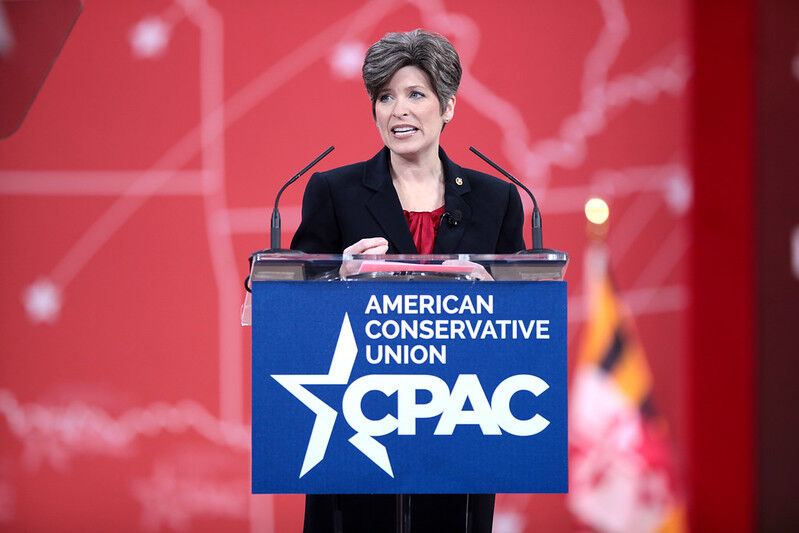Letter: How politicians change: Joni Ernst then vs. now
U.S. Sen. Joni Ernst, R-Iowa, says legislation she’s driving in the Senate would give border states the resources to build their own barriers to prevent illegal immigration.
July 7, 2021
In 2014, Joni Ernst campaigned with a CIA contractor who was in Benghazi, Libya, when the U.S. Consulate suffered a surprise attack Sept. 11, 2012. Ernst claimed the Benghazi attack proved then-Secretary of State Hilary Clinton had failed to lead and “acted irresponsibly.” The Republicans were so interested in investigating that they formed five different House committees, a Senate committee and a House select committee formed by then-House Speaker John Boehner, even though the State Department had its own Review Board, whose recommendations Clinton accepted. The House investigations were some of the longest in our history, and the overall conclusion was that while the loss of four American lives was tragic, no wrongdoing could be ascribed to Clinton.
Why so many investigations? During the 2016 campaign, then-Majority Leader and Republican Kevin McCarthy told Fox News that Clinton’s poll numbers had been very strong, “but we put together a Benghazi special committee, a select committee. What are her numbers today? Her numbers are dropping” — further evidence of the political nature of the many extended investigations. The last committee on Benghazi closed a month after the 2016 election but more than four years after the attack.
So, should we assume Joni Ernst would want to look carefully into former President Donald Trump’s leadership during the Jan. 6 assault on the U.S. Capitol, an attack that threatened the safety of members of Congress and our vice president, that resulted in the deaths of five Americans, serious injury to many Capitol police officers and threatened the integrity of the electoral process? No, not at all. On May 19, she told reporters, “Here we are, five months later. What is the point? It’s turning into a political exercise.”
To paraphrase an old song, Joni, we hardly know ye…
Sue Ravenscroft is a faculty emerita.

















